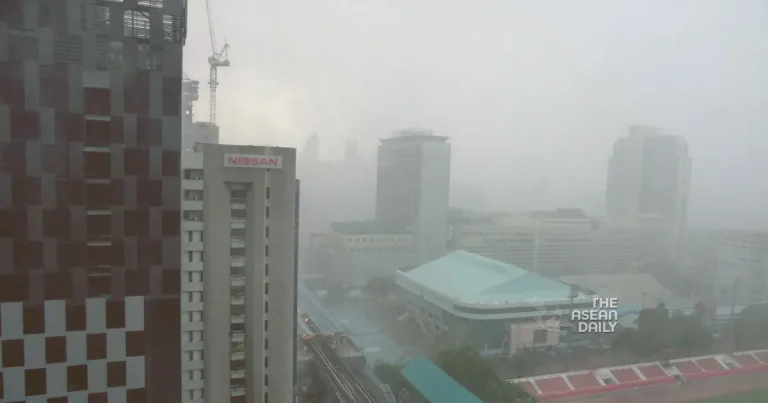18-9-2023 (BANGKOK) Thailand is facing a severe air pollution crisis, with the head of a prominent agricultural body calling for a ban on stubble burning by farmers to improve the country’s air quality. The alarming spike in dangerous pollution has left millions of people requiring medical treatment. Earlier this year, Bangkok and the northern city of Chiang Mai ranked among the most polluted cities in the world on certain days in April.
To address the issue, authorities urged residents to stay indoors and work from home as the concentration of hazardous PM2.5 particles, which are so minuscule that they can enter the bloodstream, reached unsafe levels. Among the major sources of these particles is the burning of stubble by farmers to prepare the land for the next crop. This practice, known as the “burning season,” typically peaks between December and April.
The president of the Thai Feed Mill Association (TFMA), Pornsil Patcharintanakul, who operates under the commerce ministry, emphasized the urgent need for the government to ban crop burning, which is widely practiced by farmers in Thailand. He called on Prime Minister Srettha Thavisin’s administration to take swift action to address this pressing issue.
This year, more than two million people in Thailand sought medical treatment due to health problems associated with air pollution. Pornsil, whose organization monitors the quality of animal feed, urged Thailand to adhere to international farming guidelines that prohibit stubble burning. He proposed a realistic timeline of three years to completely ban this practice.
The urgency to address this issue is further underscored by the European Union’s implementation of the “Carbon Border Adjustment Mechanism” (CBAM), which imposes charges on emissions linked to the production of imported goods.
While the government of Prime Minister Srettha Thavisin has acknowledged that tackling PM2.5 pollution is a priority, it has yet to disclose specific details on its plans to combat the problem.




